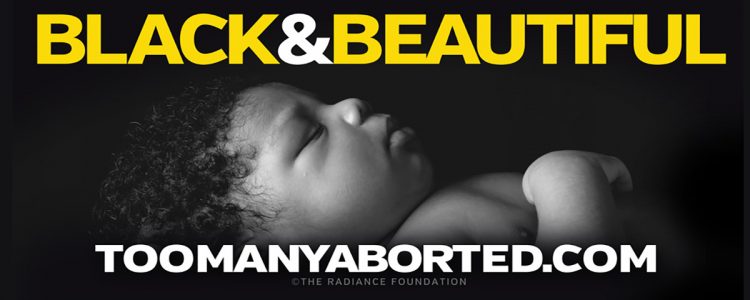
The sickening and unjust killing of George Floyd has catapulted the nation into a frenzied discussion about systemic racism. This past January the National Pro-Life Summit conducted a panel on the impact of abortion on the black community, and the key points from it are now more applicable than ever. Four black pro-life leaders offered their views on the systemic racism of Planned Parenthood and abortion, which they called the most important civil rights issue of today.
Here are four takeaways from the panel about how to combat the narrative that access to abortion is necessary to end racism:
1. Planned Parenthood was founded in part to slow the growth of minority populations
“Eugenics is more than just a philosophy. It is directly implanted in policies that target African Americans and minorities,” said panelist Patrina Mosley, director of life, culture, and women’s advocacy at the Family Research Council, a Washington-based research group that supports pro-family legislation and education.
Margaret Sanger, the founder of Planned Parenthood, purposely located her centers in the midst of minority communities in order to quell their population growth. This goal has been realized, Mosley pointed out, by the fact that in 1860 the black population of the United States was 14% in 1860, compared to 12.6% as of 2010.
2. The NAACP and other mainstream civil rights groups are in league with Planned Parenthood
Ryan Bomberger, chief creative officer and co-founder of pro-life group The Radiance Foundation, has launched numerous ad campaigns against the outsized influence of abortion on the black community. His 2015 billboard campaign titled “Black and Beautiful” earned the ire of the NAACP for pointing out the increased rate of abortion among black women, which is up to ten points higher than any other demographic.
“The NAACP and Planned Parenthood denounced our billboards as ‘horribly racist’ because they said the billboards gave the false impression that Planned Parenthood kills black babies,” Bomberger said. “In truth, Planned Parenthood kills black babies, white babies, and every hue in between.”
3. Local crisis pregnancy centers are the ones who offer free, comprehensive health care to marginalized women. Not Planned Parenthood
According to Christina Bennett of the Family Institute of Connecticut, there is great need to combat the narrative that Planned Parenthood is the only place women can go for affordable health care.
“In reality, crisis pregnancy centers are the ones providing women with holistic care,” Bennett said. She also reminded the crowd that Planned Parenthood does nothing without payment, while most crisis pregnancy centers don’t charge clients anything for their services.
4. Building personal relationships with the communities most affected by abortion is key to changing hearts and minds.
“In order to build a relationship, you need to understand and listen first,” Mosley said. “ You need to hear where they’re coming from, build on your common foundations, and keep giving facts.”
Bennett added that piling on somewhat depressing statistics at the beginning of a relationship with someone you’re trying to convince is not the best way to go about achieving your goal. She reminded those gathered that people often know more about abortion than you think they might, and it is important to listen to their stories and experiences before launching into an argument.
